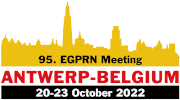Parental burnout in medical in non-medical community in Lithuania during the COVID-19
Aelita Skarbaliene
Keywords: Parental burnout, community, healthcare professionals
Background:
The number of employees’ work-related stress is growing. 44.8 % of workers were classified as high personal burnout perceived group, 46.7% as high work-related burnout perceived group, and 35.1% as high client-related burnout perceived group. In prolonged work-related stress, burnout is arising. Burnout affects 5%–7% of the general population. It is a mix of exhaustion, cynicism, and ineffectiveness. Burnout victims get emotionally and physically exhausted. For those who must fulfill both professional and parental responsibilities burnout is more prevalent. As parenting has been shown to be both a complex and stressful activity, individuals with kid(s) are seriously facing the challenge of participating successfully both as employees and as family members, since involvement in any role is associated with additional demands on working hours, time allocated to care for children, and time for household tasks. The aim of this study was to reveal the parental burnout in medical and non-medical communities during COVID-19.
Research questions:
1. What is the prevalence of parental burnout in medical and non-medical communities?
2. What factors are associated with a higher level of parental burnout?
Method:
The questionnaire included demographics, Parental Burnout Assessment, Emotional Regulation Questionnaire, and Co-parental Cooperation tool. Data were collected from a sample of 408 Lithuanian parents.
Results:
The results revealed that healthcare professionals experienced relatively milder burnout in parenting activities than representatives of other professions. Greater burnout is caused by the younger age of parents, higher education, a higher number of children living together, and time spent helping children with education.
Conclusions:
Acknowledging that parenting can be challenging and exhausting for many parents, particularly in times of pandemic, may raise the initiatives by psychologists, public health specialists, social workers, teachers, etc. to help minimize the exhaustion of parenting and support individuals who suffer from parental burnout.
Points for discussion:
Differences in the level of parental burnout in medical and non-medical communities
Stigma of parental burnout in the community

